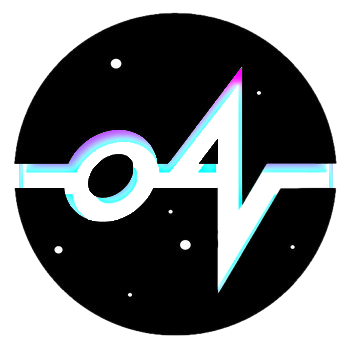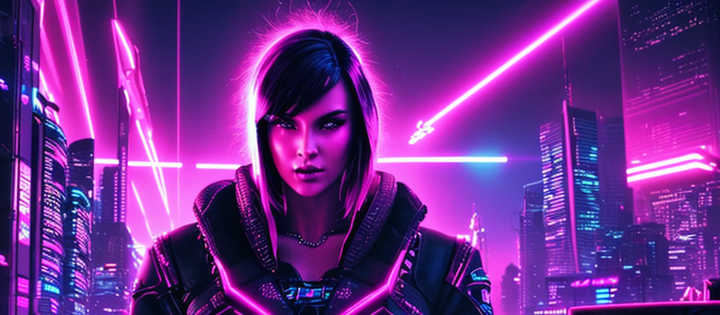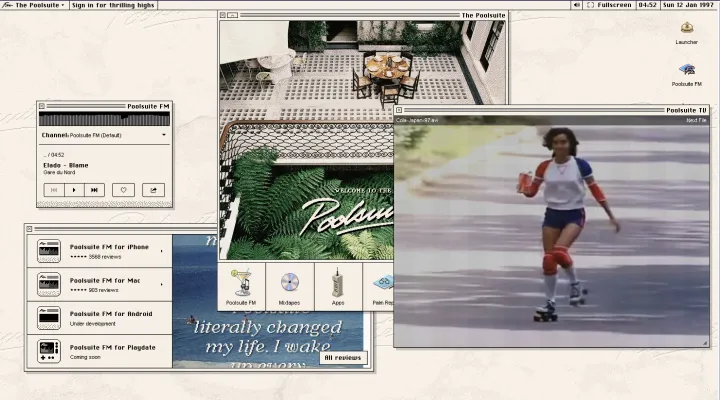Revisiting The Lost Boys (1987)
1987 marked a revolution in vampire cinema. Director Joel Schumacher transformed an initial concept - originally planned as a vampire-themed variation of The Goonies - into something bold and unprecedented.
Last night, I dug through my collection of VHS tapes, each one a time capsule of sorts. There, between a worn copy of Blade Runner and The Breakfast Club, sat The Lost Boys. The cardboard sleeve showed its age - corners softened, colors slightly faded, that distinctive video store price sticker still stubbornly clinging to one corner.
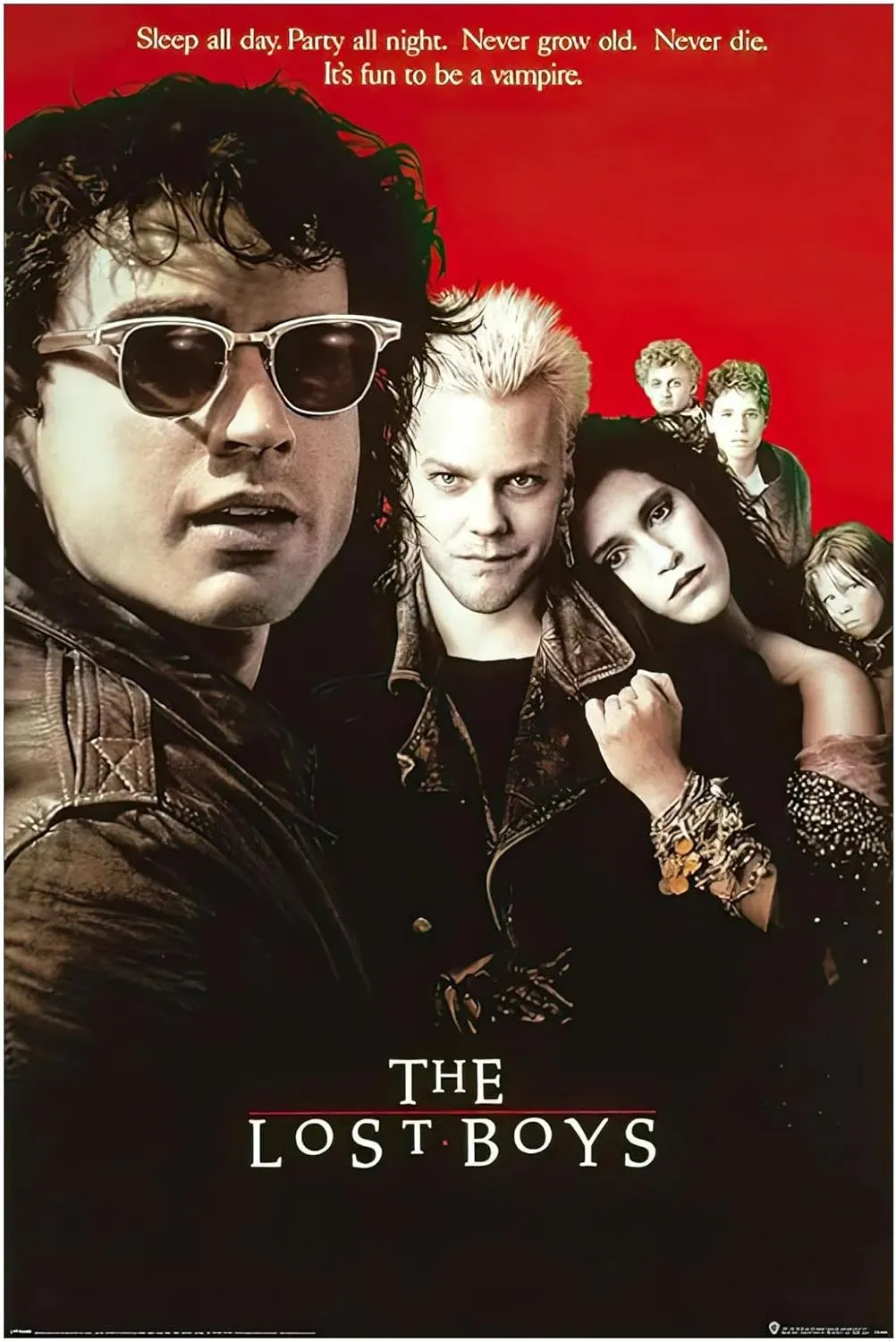
The Lost Boys began as a Hollywood dreamer's story. Two first-time screenwriters, Janice Fischer and James Jeremias, struck gold when their vampire tale commanded $400,000 - the kind of debut most writers only fantasize about. The script's transformation mirrors my own journey with the film. What started as a Goonies-style adventure under Richard Donner's initial direction evolved when Joel Schumacher took the helm. Together with screenwriter Jeffrey Boam, they aged up the characters, transforming a kids' vampire chase into the darker, sexier revolution we know today.
Setting up for a rewatch felt like a ritual. I'd kept my old CRT TV specifically for moments like this. The soft click of the tape entering the VCR, that momentary static wash across the screen - these aren't imperfections, they're part of the experience. The FBI warning appears, slightly warped at the bottom of the screen, and suddenly I'm transported back to countless late-night viewings.
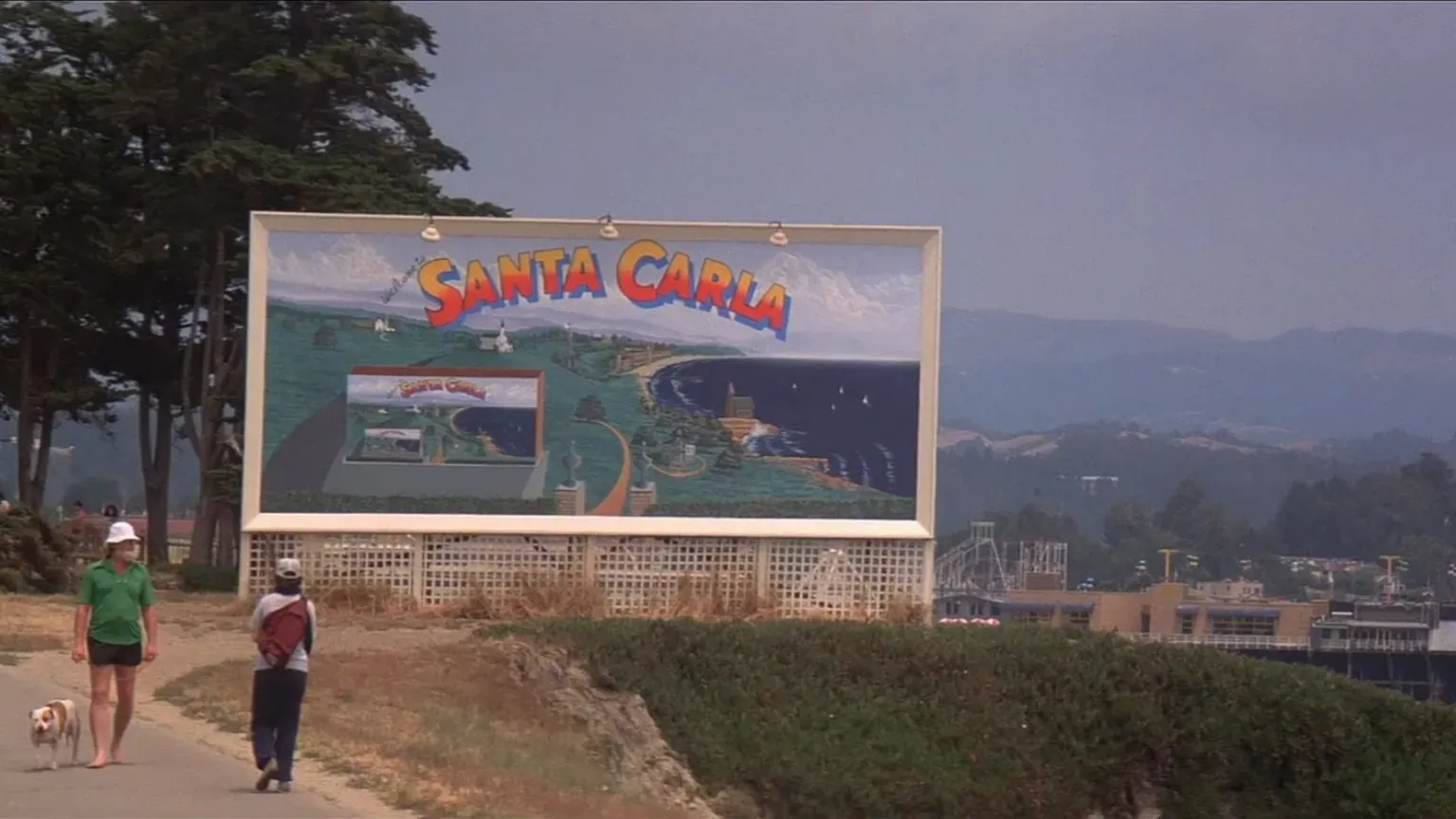
The opening shots of Santa Carla's boardwalk hit differently in 2025. That carnival atmosphere, free from smartphones and modern distractions, feels almost alien now. When Gerard McMann's "Cry Little Sister" kicks in, I get goosebumps. The sound has that distinctive VHS quality - slightly compressed, warmer somehow. You don't get that warmth from digital.
Michael and Sam's arrival in Santa Carla (that sign declaring it the "Murder Capital of the World" still makes me grin) reminds me of every time I've moved to a new town. The way Michael falls in with David's crew through his attraction to Star - I remember feeling that pull of the 'wrong crowd' in my own teenage years, though thankfully none of them turned out to be vampires.
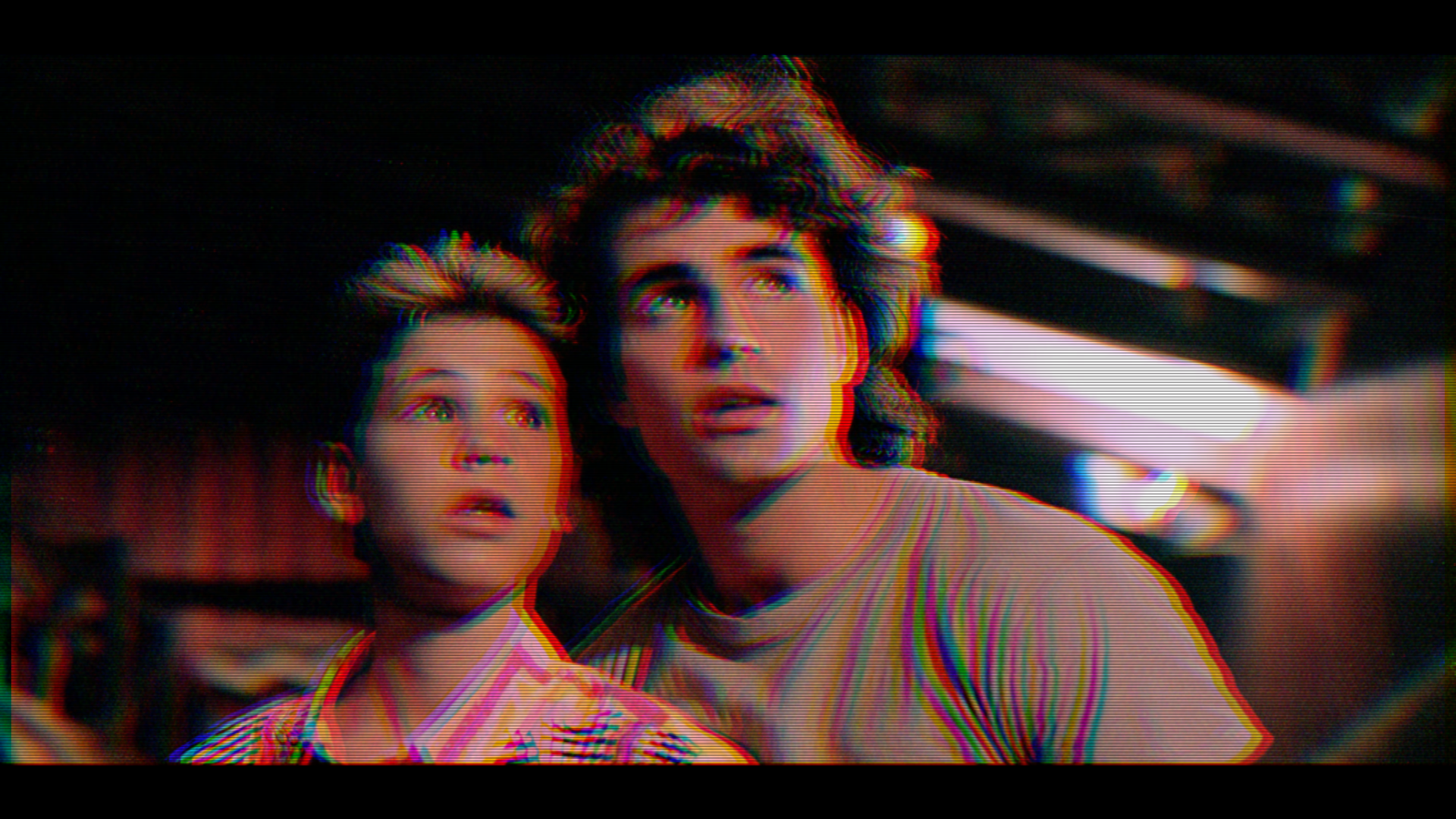
Watching Kiefer Sutherland's David now, I'm struck by how his performance shaped decades of vampire media. That mix of danger and charisma, the way he makes "Sleep all day. Party all night. Never grow old. Never die" sound less like a threat and more like the most tempting invitation imaginable. Modern vampire stories are still chasing that perfect balance.
The Frog Brothers make me laugh even harder now. Corey Feldman's Stallone-inspired delivery of vampire-hunting wisdom hits that sweet spot between comedy and conviction. I catch myself mouthing along to their lines - "Death by stereo!" never gets old.
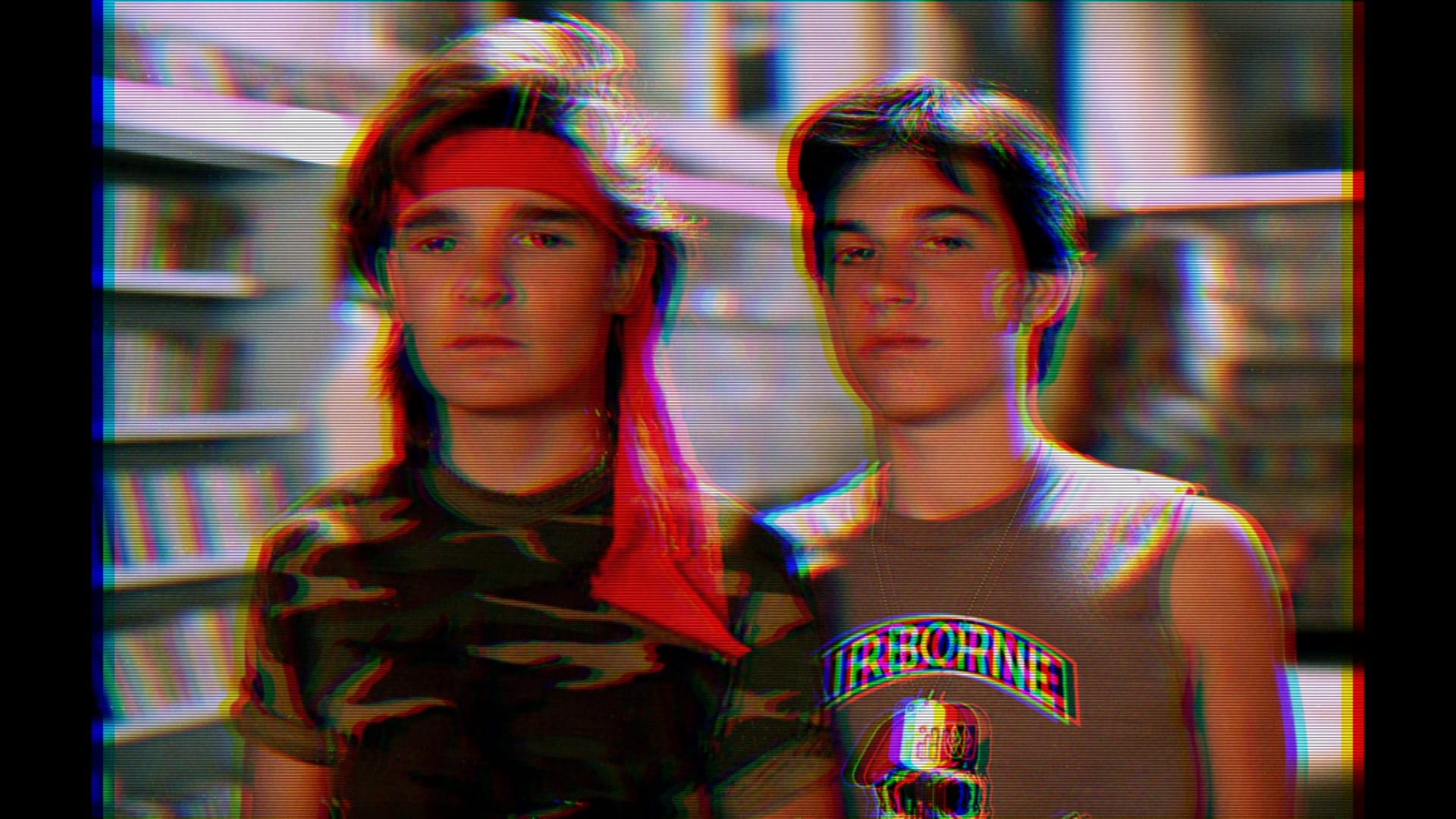
The practical effects still work their magic. That first vampire reveal, the transformation scenes, the final confrontation - they have weight, substance. The way the blood looks thick and real, the tangible presence of the prosthetics - it makes me appreciate how much we've lost in our rush to CGI everything.
Tim Capello's saxophone performance remains a highlight. That glistening, muscled intensity, the raw energy of live performance - it captures everything great about 80s excess in one perfect scene. I find myself rewinding this part twice, just because it's so perfectly of its moment.
Pausing the tape at the midpoint, I make some popcorn - a habit from those original viewing nights. The tracking needs slight adjustment (a forgotten art in our digital age), but that slight imperfection only adds to the authenticity of this rewatch.
The second half of The Lost Boys hits harder now. When Sam teams up with the Frog Brothers to save Michael, I remember how this film taught me about family loyalty. Their amateur vampire-hunting operation, armed with water guns and comic book knowledge, still charms me. The way Edgar and Alan Frog approach vampire hunting with deadly seriousness while wearing bandanas and military surplus - it's pure 80s teen conviction.
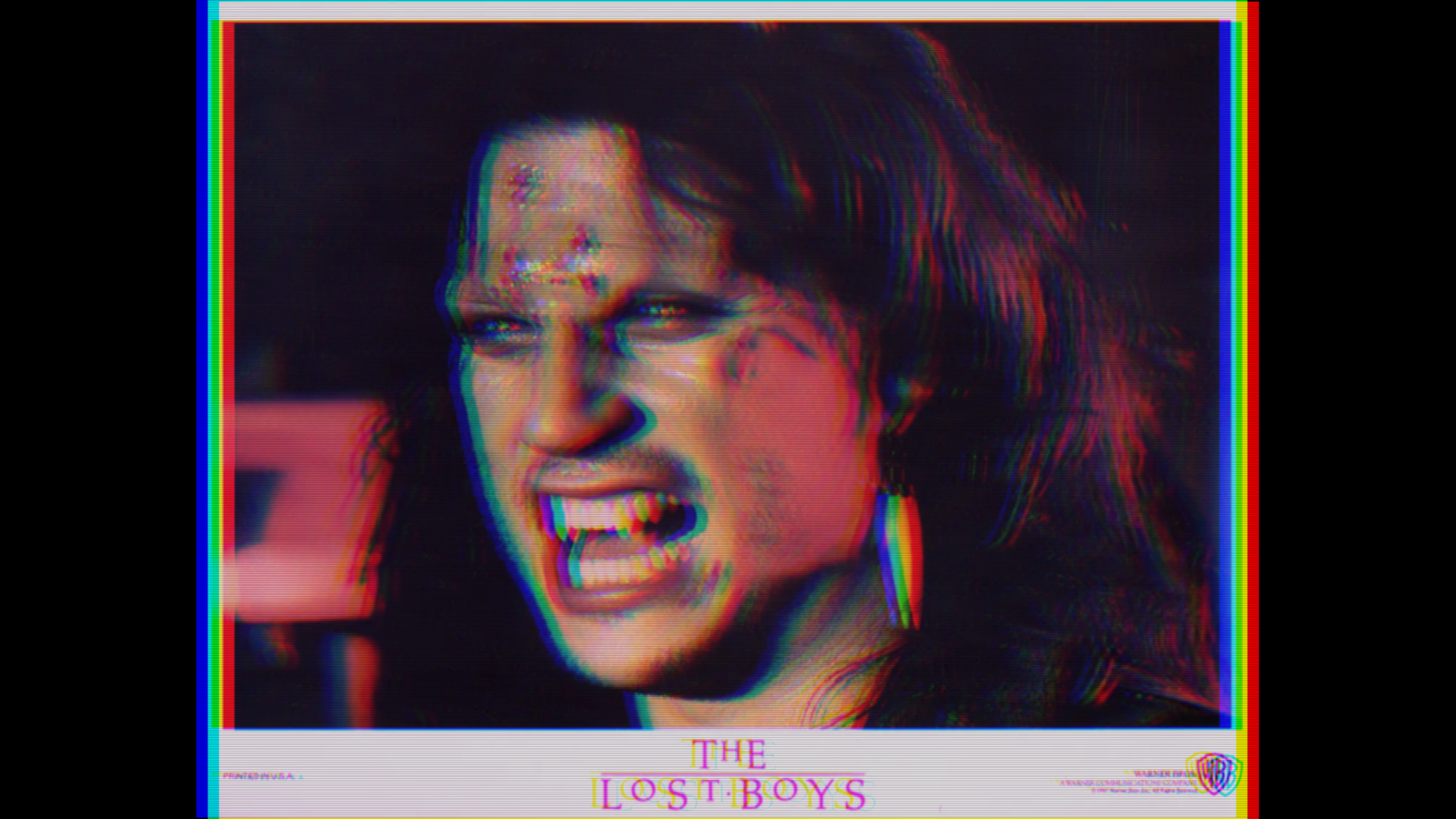
Watching Dianne Wiest's Lucy navigate single motherhood in Santa Carla, I appreciate layers I missed in earlier viewings. Her tentative romance with Max carries new weight - the way she balances personal happiness with protecting her sons speaks to complexities I couldn't grasp as a younger viewer. Every parent watching this film probably sees those scenes differently now.
The cave scenes remain a masterclass in atmosphere. The Lost Boys' underground lair, with its Victorian hotel remnants and rock star décor, defined "vampire cool" for generations. That bottle scene - "How are those maggots?" - still makes me squirm, even knowing the trick. The practical effects hold up beautifully, proving that sometimes the old ways work best.
Something about watching this on VHS adds gravitas to the film's themes of resistance to change. Here I am, deliberately choosing an "outdated" format because it feels more authentic. It mirrors the film's exploration of holding onto humanity in the face of seductive transformation. The slight wear on the tape, the occasional tracking lines - they're battle scars that add character, like the memories we carry through life.
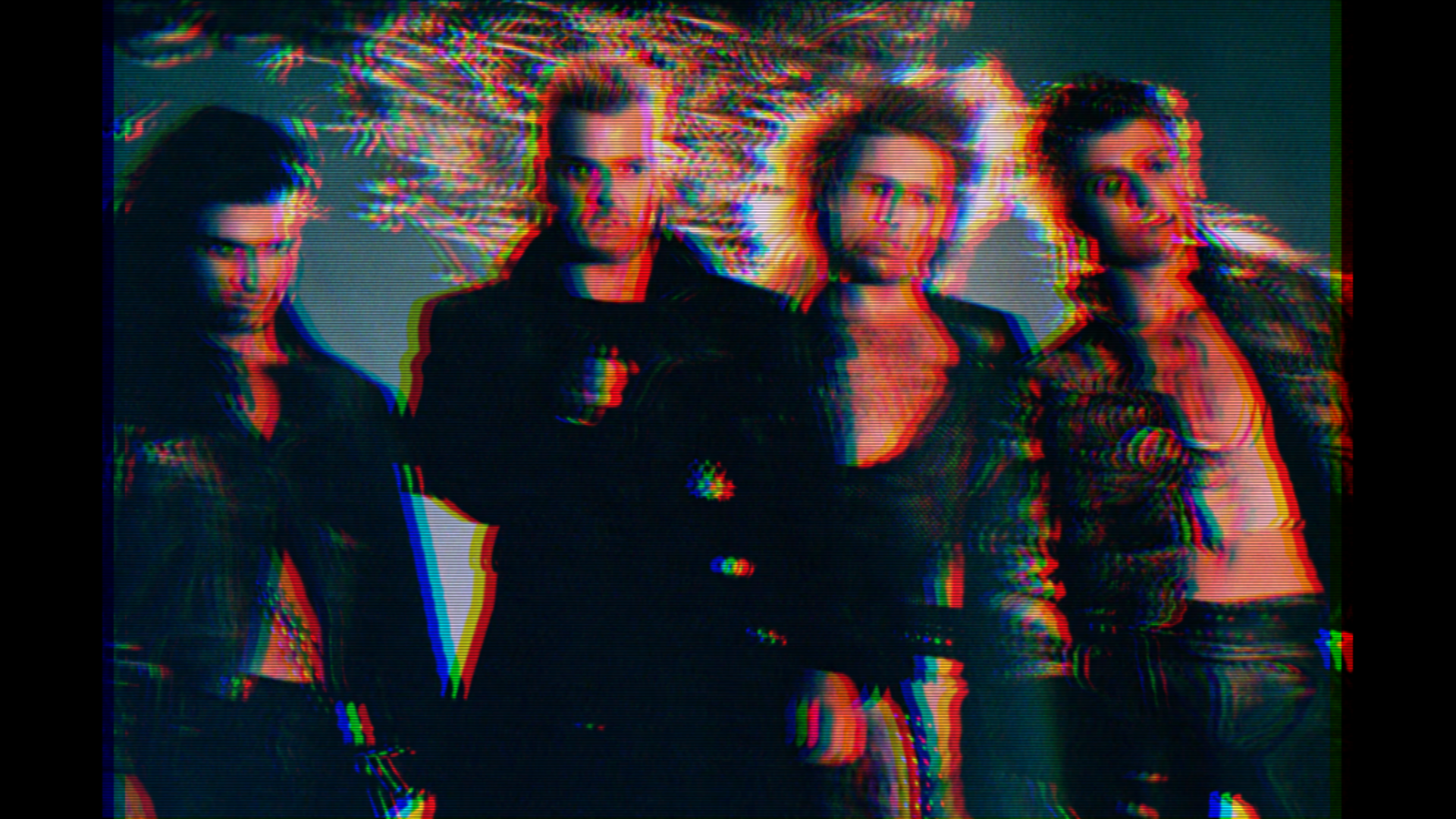
Star's predicament resonates differently now too. Jami Gertz brought such complexity to what could have been a simple love interest role. Her warning to Michael carries real weight - she's not just fighting vampirism but the allure of eternal youth itself. In 2025, as we chase digital immortality through social media and filters, her struggle feels surprisingly relevant.
The final confrontation in the Emerson house remains thrilling. The death of each vampire brings practical effects that outshine many modern CGI sequences. When the final twist reveals Max's true nature, I remember how this blindsided me on first viewing. Now I catch all the subtle hints planted throughout - the invitation rules, the way he mirrors David's controlling behavior, even his name's connection to Nosferatu's Max Schreck.
As the credits roll over "People Are Strange," I sit with the impact this film had on vampire media. Before Twilight, the Lost Boys wrote the rulebook for modern vampire stories. It showed how to blend horror with humor, action with emotion, and supernatural threats with human drama.
The tape finishes, automatically rewinding with that familiar mechanical whir. I think about the announced reboot, and while I'm curious, I know they can't recreate this specific magic. The Lost Boys is a perfect snapshot of 1987, preserved in amber and magnetic tape.
Some experiences can't be upgraded, only revisited and cherished. The Lost Boys, viewed through the gentle grain of VHS, remains an unbeatable reminder of why we fell in love with movies in the first place. Sleep all day, party all night, never grow old, never die - and never forget the films that shaped us.
All images used in this review are the property of their respective owners. They are used here under the fair use doctrine of the copyright law for commentary and critique purposes. If you are the rightful owner of any of the images and have an issue with their use, please contact us and we will remove them immediately.
